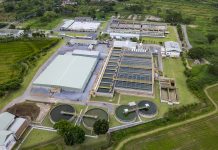Abstract
The chemical industry is transforming towards sustainability by integrating renewable energy and bio-based chemicals, supported by technological innovations, government policies, and international collaborations to reduce carbon emissions.
Introduction
Chemical industry is undergoing a significant transformation driven by the urgent need to reduce carbon emissions and promote sustainability. Central to this change is the integration of renewable energy sources into the production of chemicals traditionally reliant on fossil fuels. We focus on the latest developments and innovations in the field of Engineering, Procurement, and Construction (EPC) for renewable-to-chemical processes, highlighting the potential for sustainable growth and environmental preservation.
Bio-based Chemicals
One promising avenue for sustainable chemical production is the development of bio-based chemicals. These substances, derived from renewable biological resources such as plants and microorganisms, offer a viable alternative to petrochemicals. Advancements in biotechnology have enabled the production of various chemicals from biomass, including ethanol, butanol, and lactic acid. This shift towards bio-based chemicals not only reduces reliance on fossil fuels, but alsocontributes to a circular economy by utilizing waste streams and by-products as feedstock.
A case study explores producing bioethanol from rice straw, a renewable by-product of rice production, to replace fossil fuels, enhance sustainability, and improve energy security. The process involves pretreating rice straw, breaking it down with enzymes into simple sugars, fermenting these sugars with yeast to produce ethanol, and recovering the ethanol through distillation.
Benefits include reducing carbon emissions, managing agricultural waste, and providing a domestic renewable fuel source. This highlights the potential of sustainable technologies in transforming agricultural waste into valuable energy resources.
The Integration
Another key area of innovation is the integration of renewable energy into chemical manufacturing processes. Producing ethylene from food waste without greenhouse gas emissions represents a significant breakthrough.
This process addresses the challenge of managing food waste and demonstrates how renewable energy sources can be harnessed to produce essential chemicals in an environmentally friendly manner. Indian Oil Corporation Limited’s bio-ethanol plant project in Panipat brings numerous advantages, including lowering carbon emissions, handling agricultural waste efficiently, and offering a homegrown renewable fuel option.
Similarly, India’s development of hydrogen infrastructure, such as the first hydrogen fueling station in Vadodara, aims to support fuel cell electric vehicles (FCEVs) and enhance transportation energy options. Hydrogen, produced from renewable sources like wind and solar, serves as a clean energy carrier and a sustainable alternative to fossil fuels, promoting a greener economy.
While the direct link to converting renewables to chemicals is not explicit, hydrogen’s role in the renewable energy landscape and its potential in chemical synthesis underscore its importance in achieving a sustainable and circular economy.
The Transition
Governments worldwide are recognizing the importance of supporting the transition to renewable chemicals through policy measures and investments. The establishment of carbon capture and utilization centers exemplifies such initiatives.
These facilities aim to capture CO2 emissions from industrial processes and convert them into valuable products, thereby reducing the overall carbon footprint of the chemical industry.
Collaborations between leading companies in the renewable chemicals sector are driving technological advancements and market expansion. Partnerships like those between Neste, Marubeni Corporation, and Resonac Corporation highlight the global interest in developing renewable chemicals. These collaborations are expected to accelerate the adoption of renewable-to-chemical technologies, contributing to the sector’s rapid expansion.
The Future
The future of the chemical industry lies in its ability to embrace renewable energy sources and sustainable practices.
By focusing on bio-based chemicals, integrating renewable energy into production processes, leveraging government support, and fostering international collaboration, the sector can achieve significant reductions in carbon emissions while meeting the growing demand for chemicals.
As we move forward, the role of EPC in facilitating these transitions becomes increasingly crucial, paving the way for a more sustainable and resilient chemical industry.As the world seeks to address climate change and promote sustainable development, the chemical industry stands poised to lead the charge towards a greener future.





























